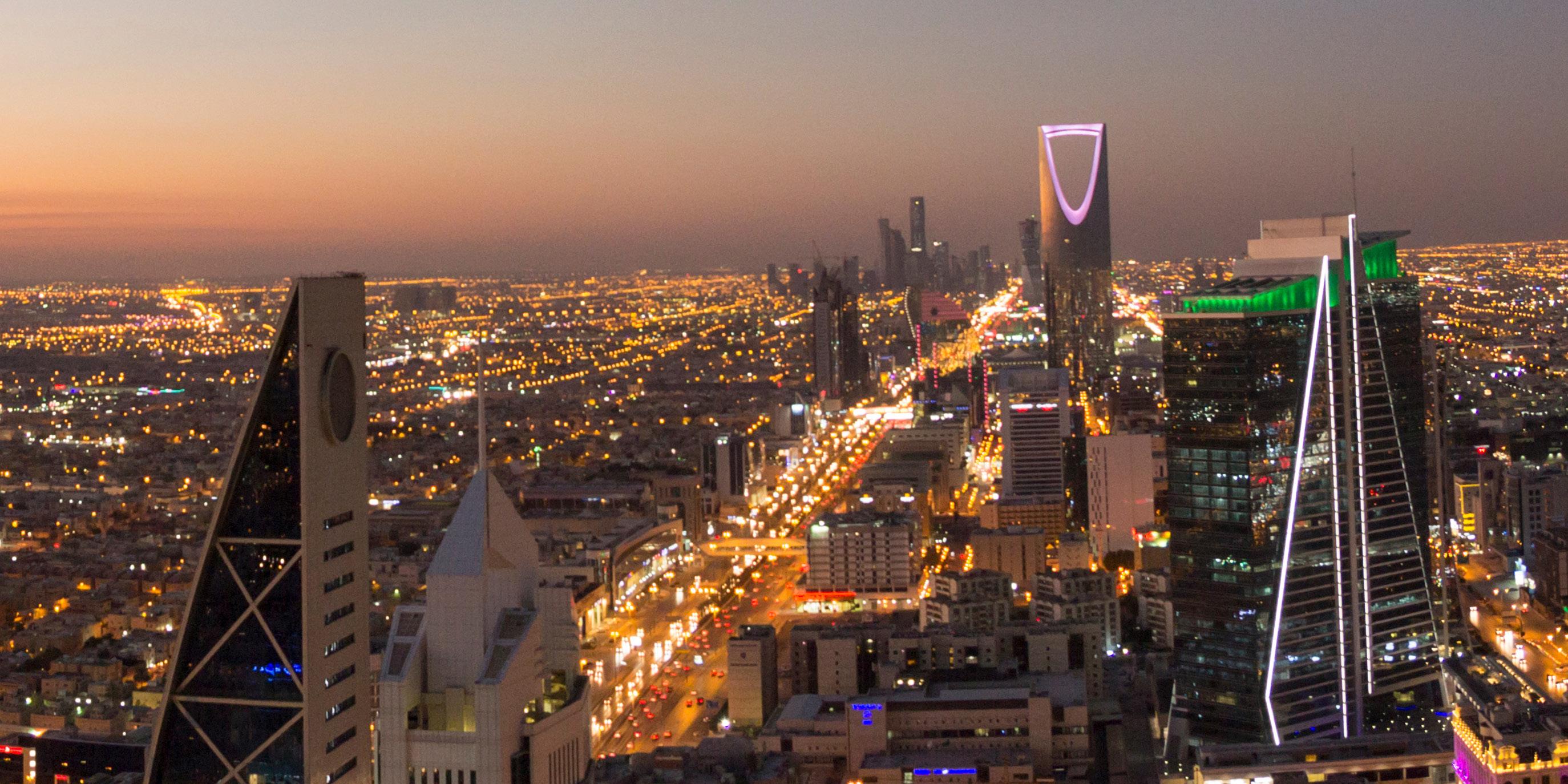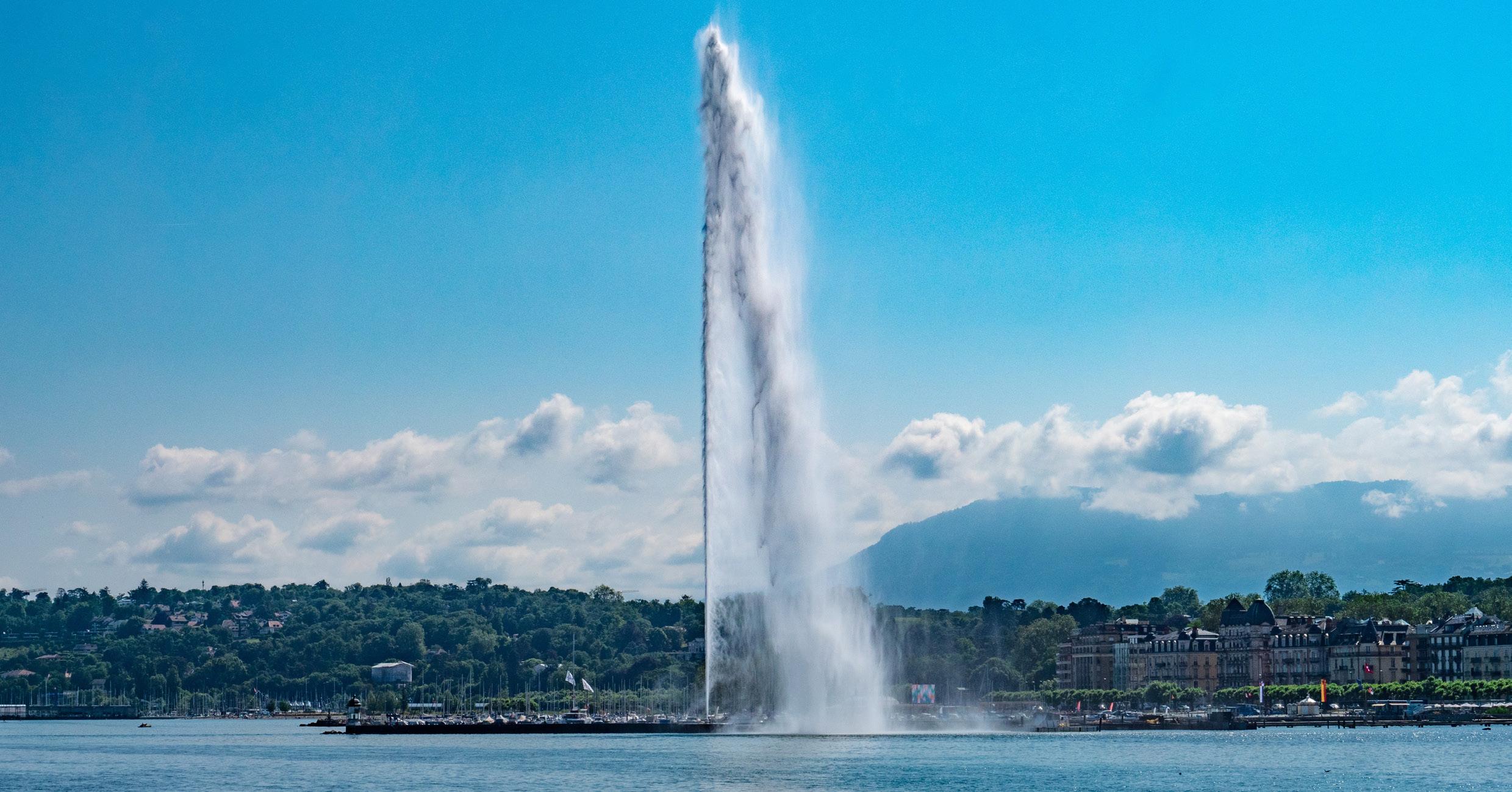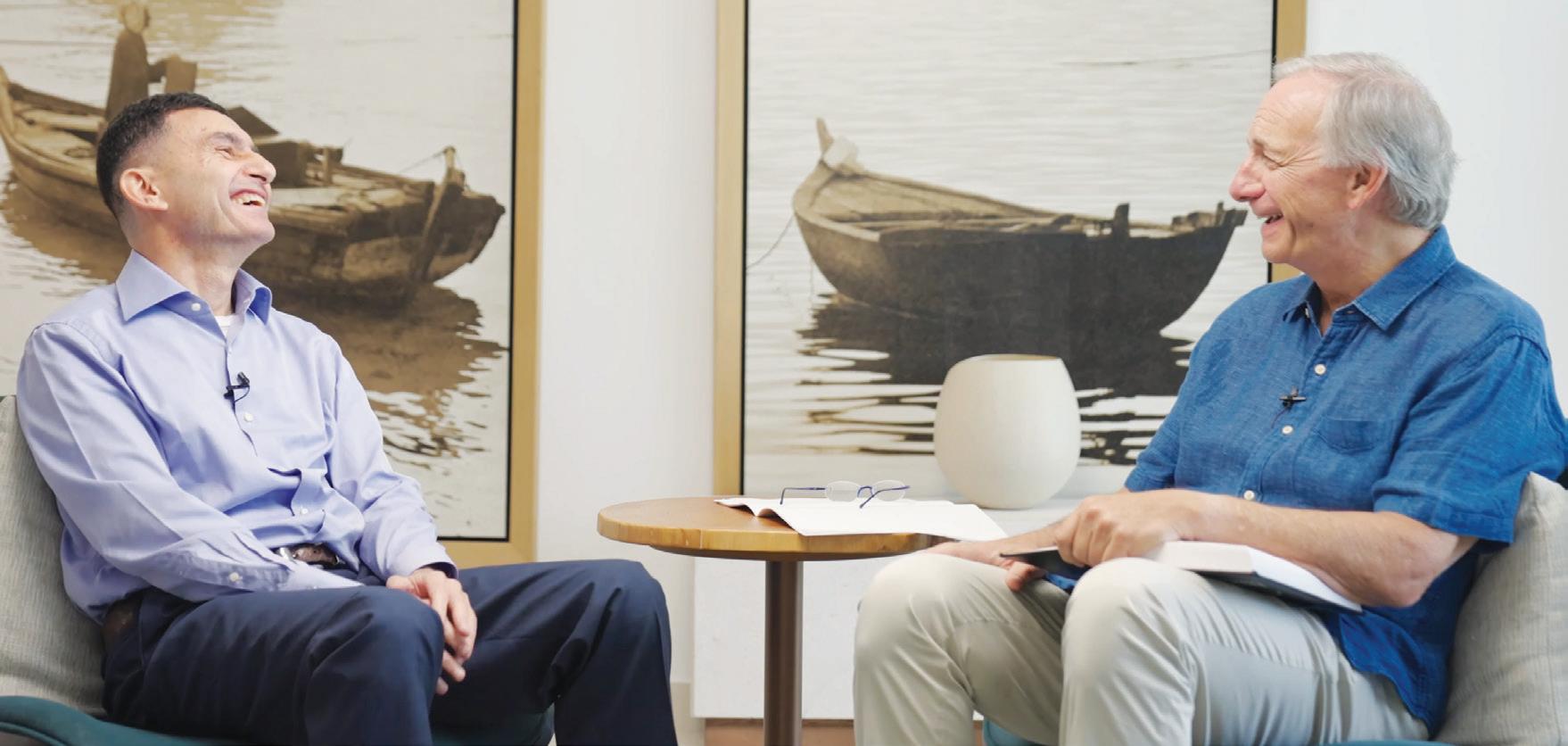
3 minute read
The Renaissance States
Liwa Capital Advisors Co-Founder & Managing Partner, Hashim Kudsi, sat with Ray Dalio, Founder of Bridgewater Associates, to hear his thoughts on where countries like the UAE, Saudi Arabia, Singapore, and Switzerland are in their arc cycle.

Advertisement
Just like a doctor can check your health, Ray believes that the health of a country can be measured through a set of reliable indicators.
Financial health, for example - do you earn more than you spend? Do you have a good income statement and strong balance sheet? Do people work well together, or is there internal conflict that is disruptive? Is international war a threat or not?
These are defining issues for a country, but these outcomes are no mystery. They can be traced back to some basic underlying factors.
Education, not just in the academic and professional sense, but relating to character development and ethics. It’s important to ensure civility. A harmonious community leads to improved productivity and a better society, with better finances.

Switzerland

Education is one of the ways a nation can ensure it’s people can interact well, can get along and work together effectively. It can also instil positive attitudes around work, so that people have a sense of accomplishment.
The cost of education matters. Those countries with educated people working cost-effectively are very competitive. India is an example of this.
In Switzerland and Singapore, human capital has been very important. Those countries don’t have an abundance of natural resources. They succeed in part through human development.


The UAE and Saudi Arabia, obviously have considerable income from fossil fuels. Around 50% of the UAE’s income comes from energy. For a long time, the UAE has reinvested that in developing it’s human capital alongside a strong non-energy economy. Saudi Arabia is now making huge strides in that direction too.
Corruption is an important indicator. We have corruption indices that show the different corruption levels between countries. And we know there is a -54% correlation between a country’s level of corruption and it’s growth level over the next 10 years.
A successful country needs healthy competition and rule of law.
Openness is key. Being open is the only way to benefit from the international exchange of ideas. Isolation (it’s opposite) lead to the collapse of the Qing dynasty in China, for example.
The UAE has a population that is 90% expat. People from all over the world have made the Emirates their home. That openness attracts international expertise, some of the best human capital, and educates the nation’s population.

Today, under new leadership we see a new openness in Saudi Arabia. The country is rapidly opening up to the world.
Openness brings a diversity of thinking. You end up attracting new technologies, the best talent, and the best ideas from all over the world. That openness becomes a competitive advantage.
As does neutrality. Particularly when larger global powers are in conflict, which doesn’t necessarily mean a military conflict. Sanctions, trade wars, and other disputes provide an opportunity for open and neutral countries, who are the natural beneficiaries of talent, people, capital and property. Switzerland, for example, has done this for centuries. Environments like Singapore, Switzerland, the UAE, they become the renaissance states.
If we look at the renaissances in history, they were in places where there was great trade and education. They offered a lot of inventiveness and dynamism. They stayed out of wars and almost benefitted from them, because they were talent magnets.
Capitalism has proven the best way to allocate resources to individuals who drive progress, whether that’s an entrepreneur, a scientist, or an artist. If you don’t have a good capital market, then it’s hard to ensure successful resource allocation. But you want to ensure there is equal opportunity across society. Again, the effects of stamping out corruption and having strong rule of law are evident.
Equal opportunity is very powerful because it brings talent from wherever it exists. It improves your access to talent, which combined with capital can produce good results. It also creates a sense of fairness. That lends stability, because infighting can result when people believe society is unfair. Civility and cooperation start to collapse. Revolutions can happen.
Stability underpins any successful nation. You need a strong legal system and rule of law. There is very little crime in the UAE and people feel very safe. The same can be said of Saudi, Singapore, and Switzerland, of course. But civility is difficult to enforce, it’s far easier to instil ethics within people through education.
When looking at countries that succeed economically, Ray sees a lot of parallels with families that succeed. They tend to be well educated, well mannered, harmonious, with solid values and productivity.

His prescription for any country is clear. There are certain fundamentals: Earn more than you spend. Be civil. Have rule of law. Healthy competition. Stay out of international wars. Educate people well.
These are the basic building blocks behind a nation’s economic success. And as the old adage goes, ‘What get’s measured, get’s improved’. There are 18 measures that can be monitored and compared peer-to-peer with other countries.












